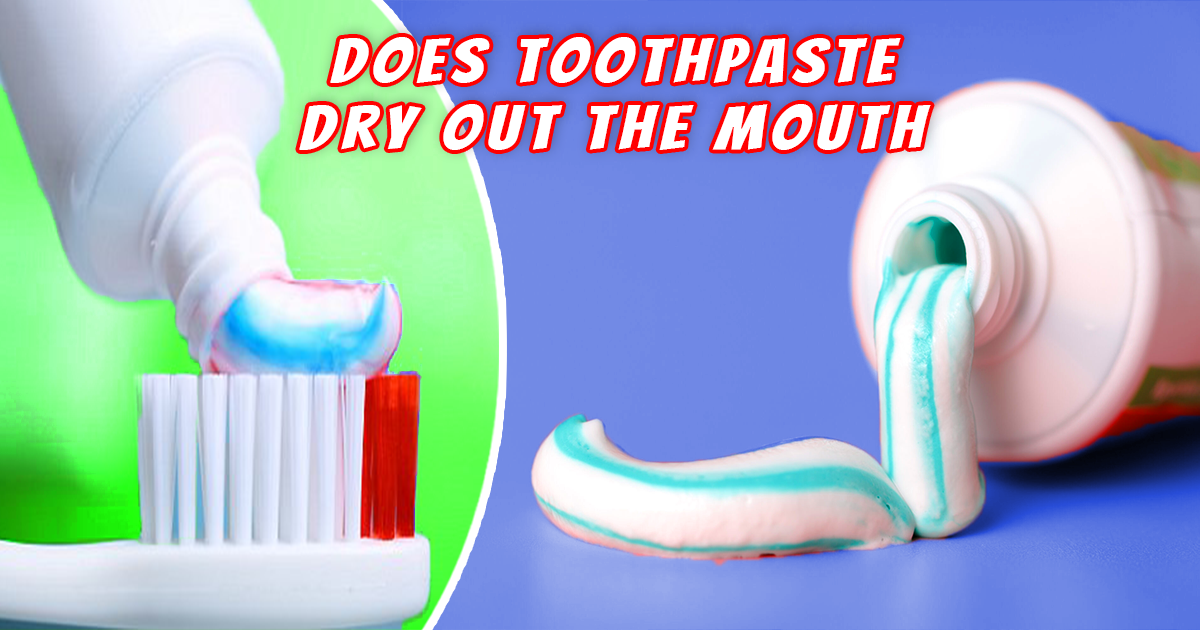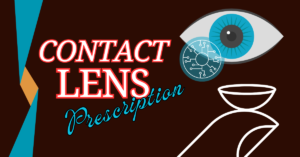Does Toothpaste Dry Out the Mouth?
We all use toothpaste multiple times a day to keep our teeth and gums healthy, but have you ever wondered if it might be doing more harm than good in some cases? Specifically, have you noticed that your mouth feels dry after brushing? If you’re asking, “Does toothpaste dry out the mouth?” you’re not alone. Many people experience this sensation and are unsure of the cause. In this article, we’ll explore whether your toothpaste could be the culprit behind your dry mouth, what ingredients to look out for, and how you can prevent this discomfort while keeping your oral health in check.
What is Dry Mouth?
Before diving into whether toothpaste can cause dry mouth, let’s first understand what dry mouth actually is. Dry mouth, medically known as xerostomia, occurs when your mouth doesn’t produce enough saliva to keep it moist. Saliva plays a critical role in maintaining oral health, as it helps break down food, protects teeth from decay, and washes away food particles. When there’s a shortage of saliva, you may experience discomfort, bad breath, and an increased risk of cavities.
Common Causes of Dry Mouth
Dry mouth can be triggered by a wide variety of factors:
- Dehydration: Not drinking enough water can reduce saliva production.
- Medications: Many common medications, including antihistamines, antidepressants, and blood pressure drugs, list dry mouth as a side effect.
- Aging: As we age, the body naturally produces less saliva.
- Health Conditions: Diseases like diabetes and autoimmune disorders can lead to dry mouth.
- Lifestyle Factors: Smoking, alcohol consumption, and caffeine can all contribute to a dry mouth.
Can Toothpaste Really Dry Out the Mouth?
So, where does toothpaste come into play? Can it actually dry out your mouth, or is it just a coincidence?
While toothpaste itself isn’t usually the direct cause of chronic dry mouth, certain ingredients in toothpaste can contribute to the sensation of dryness. If you’ve ever felt that your mouth is unusually dry after brushing, you’re likely reacting to specific chemicals or compounds in your toothpaste. Let’s break it down:
Sodium Lauryl Sulfate (SLS): A Common Culprit
One of the most commonly used ingredients in toothpaste is sodium lauryl sulfate (SLS). This chemical acts as a detergent and helps create that foamy lather we associate with brushing. While it’s great at breaking down food particles and cleaning your teeth, it can also be quite harsh on the delicate tissues in your mouth. SLS has been linked to both dry mouth and canker sores in some people.
SLS can cause irritation by stripping away the natural oils in your mouth, which might make your mouth feel dry after brushing. If you have a sensitive mouth or are prone to dry mouth, you may want to avoid toothpastes that contain SLS.
Alcohol-Based Ingredients
Some toothpastes, especially those that offer a strong “fresh” feeling, contain alcohol-based ingredients. While alcohol helps kill bacteria and freshens breath, it’s also a drying agent. Alcohol can evaporate quickly in your mouth, leading to a sensation of dryness. This is similar to how alcohol-based mouthwashes can sometimes leave your mouth feeling parched after use.
Strong Mint Flavors
We all love that minty fresh feeling after brushing, but did you know that certain strong mint flavors might be doing more than just freshening your breath? Extremely strong mint-flavored toothpastes can sometimes trigger a feeling of dryness, especially in people who are already prone to dry mouth. Peppermint, menthol, and similar ingredients can have a cooling effect that may momentarily reduce saliva production.
How to Choose a Toothpaste That Doesn’t Dry Out Your Mouth
The good news is that if your toothpaste is causing dry mouth, you don’t have to suffer through it! There are plenty of options available that are formulated to be gentler on your mouth while still providing excellent cleaning and protection for your teeth and gums. Here’s how to choose the right one:
Look for SLS-Free Toothpastes
Many brands now offer SLS-free toothpastes specifically designed for people with sensitive mouths. These toothpastes avoid the harsh detergent effects of SLS while still providing good foaming and cleaning action. Check the ingredient list, and if SLS is a problem for you, opt for a toothpaste that omits it.
Choose Alcohol-Free Toothpaste
If you’re using a toothpaste or mouthwash that contains alcohol, try switching to alcohol-free alternatives. Many alcohol-free toothpastes still deliver a fresh, clean feeling without the drying side effects. Some brands even specifically advertise their formulations as being ideal for people with dry mouth.
Pick a Toothpaste with Moisturizing Ingredients
Some toothpastes are specially formulated to moisturize the mouth, thanks to ingredients like aloe vera or glycerin. These ingredients can help soothe and hydrate your mouth while you brush, making them ideal for people with chronic dry mouth.
Recommendations for Sensitive Toothpaste Brands
- Biotène: Specifically designed for people with dry mouth, Biotène toothpaste contains no SLS or alcohol and is recommended by dentists for patients with xerostomia.
- Sensodyne: Known for its gentle formulation, Sensodyne offers SLS-free varieties that can reduce sensitivity and irritation in the mouth.
- Tom’s of Maine: This natural brand offers a variety of SLS-free and alcohol-free toothpastes that are gentle on the mouth.
Other Factors That Can Dry Out Your Mouth
Toothpaste might not be the only factor contributing to dry mouth. There are several other causes you should consider:
Dehydration
One of the most common reasons for dry mouth is simply dehydration. If you’re not drinking enough water throughout the day, your saliva production can decrease, leaving your mouth feeling dry and uncomfortable.
Medications and Health Conditions
Many medications list dry mouth as a side effect. If you’ve recently started taking a new prescription and have noticed a change in your saliva production, this could be the cause. Additionally, certain health conditions like diabetes or autoimmune diseases can affect your ability to produce saliva.
Environmental and Lifestyle Factors
Your lifestyle can also play a role. Smoking, consuming alcohol or caffeine, and living in a dry climate can all reduce moisture in your mouth. Making small changes, such as drinking more water or using a humidifier at night, can help.
How to Combat Dry Mouth
If you’re dealing with dry mouth, whether caused by toothpaste or other factors, there are several ways to alleviate the discomfort:
Increase Water Intake
Staying hydrated is the simplest and most effective way to combat dry mouth. Make sure you’re drinking plenty of water throughout the day to support healthy saliva production.
Use Saliva Substitutes
For people with chronic dry mouth, over-the-counter saliva substitutes can provide relief. These products are available as sprays, gels, or rinses and can help keep your mouth moist for several hours.
Chew Sugar-Free Gum
Chewing sugar-free gum can stimulate saliva production and help keep your mouth moist. Look for products that contain xylitol, which not only boosts saliva but also helps fight cavities.
Can Brushing Technique Contribute to Dry Mouth?
Aside from the ingredients in toothpaste, your brushing technique may also play a role in how your mouth feels after brushing. While it’s important to clean your teeth thoroughly, brushing too aggressively can irritate your gums and the soft tissues inside your mouth. This irritation may not directly cause dry mouth, but it can exacerbate the feeling of dryness, especially if your toothpaste contains harsh ingredients like SLS or alcohol.
When brushing, try to use a soft-bristled toothbrush and apply gentle pressure. The goal is to clean your teeth and gums without causing irritation or stripping away the protective layers of tissue that help retain moisture. If you’re prone to dry mouth, consider using toothpaste with soothing ingredients like aloe vera or glycerin that can help keep your mouth moisturized.
Frequently Ask Questions
1. Can certain toothpaste ingredients cause dry mouth?
Yes, certain ingredients in toothpaste, such as sodium lauryl sulfate (SLS) and alcohol, can contribute to the sensation of dry mouth. SLS, a foaming agent, can irritate the soft tissues in the mouth, leading to dryness, while alcohol-based ingredients can evaporate moisture, causing a dry feeling.
2. How can I prevent dry mouth caused by toothpaste?
To prevent dry mouth, try using toothpaste that is free from SLS and alcohol. Look for moisturizing toothpaste formulations with ingredients like aloe vera or glycerin. You can also stay hydrated and brush with a soft-bristled toothbrush to avoid irritation.
3. Does strong mint-flavored toothpaste contribute to dry mouth?
Yes, some strong mint-flavored toothpastes can temporarily reduce saliva production due to their cooling effects. If you experience dryness after using a mint-flavored toothpaste, try switching to a milder flavor or a brand designed for sensitive mouths.
4. Is dry mouth after brushing a sign of an allergic reaction?
In some cases, dry mouth after brushing could be a mild allergic reaction to certain ingredients like SLS, flavorings, or preservatives in toothpaste. If the dryness persists or is accompanied by other symptoms like irritation or sores, consider switching to a hypoallergenic toothpaste.
5. Can using toothpaste designed for sensitive teeth help with dry mouth?
Yes, toothpaste designed for sensitive teeth often has gentler formulations that are free from irritating ingredients like SLS. These toothpastes can be a good option for those who experience dry mouth, as they are less likely to cause dryness or irritation.
Conclusion
So, does toothpaste dry out the mouth? The answer is: it can, but it depends on the ingredients. While toothpaste isn’t the sole cause of dry mouth, certain ingredients like SLS and alcohol can contribute to the sensation of dryness. If you’re experiencing dry mouth after brushing, consider switching to an SLS-free, alcohol-free toothpaste, and look for products specifically formulated for people with dry mouth. In addition, staying hydrated and being mindful of other factors that affect saliva production can help you keep dry mouth at bay while maintaining good oral hygiene.
For more informational articles, visit our homepage My Read Magazine.

Joseph Bush is a seasoned writer and researcher with over 7 years of experience covering a wide range of general topics, from lifestyle and technology to business and current events. He is dedicated to producing fact-checked, reader-friendly content that informs, engages, and empowers readers.
Throughout his career, Joseph has followed strict editorial guidelines, relied on reputable sources, and ensured every article meets the highest standards of accuracy and clarity. His expertise spans multiple fields, allowing him to explain complex topics in a way that’s easy to understand.
Passionate about continuous learning, Joseph stays updated on industry trends and best practices to deliver trustworthy, well-rounded insights. Readers can rely on his work for its credibility, depth, and real-world relevance.




